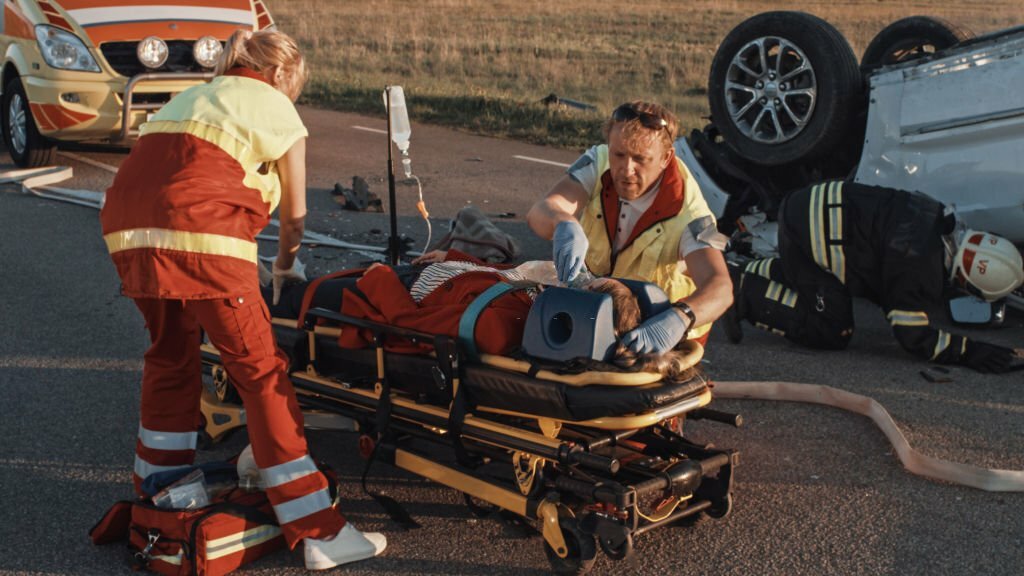Advertisements
Health insurance can be a lifesaver in the worst-case scenario of an unexpected injury, but what happens if you are injured in a car accident? Will your health insurance cover the medical bills? The quick answer is yes, but there are some crucial details to consider.
Most health insurance policies will cover medical bills incurred as a result of a car accident. However, the particular coverage and limitations may differ based on the insurance and the state in which you live. In certain cases, your auto insurance policy may also cover accident-related injury expenses, so it’s important to understand both policies and how they work.
What You Need To Know About Car Accidents and Health Insurance
Coverage for Injuries
Health insurance will cover medical expenses incurred as a result of a car accident. The particular coverage, however, will be determined by your health insurance policy. Some policies may have restrictions or limitations on coverage for car accident injuries, so carefully read your policy.
Your auto insurance policy may cover accident-related injury costs in addition to health insurance. Personal injury protection (PIP) coverage, medical payments coverage, and uninsured motorist coverage are examples of this. The particular coverage, however, will be determined by your auto insurance policy.
Claims and Reimbursement Process
Advertisements
You should get medical attention as soon as you can if you sustain injuries in a car accident. The healthcare provider will bill your health insurance company for the services rendered after receiving your health insurance information.
You will be required to pay the whole expense out of cash if your health insurance policy has a deductible or copayment. The remaining amounts will be paid by your health insurance after the deductible or copayment is satisfied.
A certain amount of your medical expenses may also be covered by your auto insurance company if your policy contains PIP or medical payments coverage. In this instance, you will have to file a claim with your vehicle insurance provider for reimbursement.
Do Therapists Work on Weekends
Health Care Fraud Lawyer
Exceptions and Limitations Policy Holders should be aware of;
1. Health insurance plans have deductibles and out-of-pocket maximums that must be fulfilled before coverage begins. This means that the insured may have to pay for some or all of the medical expenditures incurred as a result of the car accident out of pocket until they reach their deductible or out-of-pocket maximum.
2. Some types of treatments or procedures connected to car accident injuries may not be covered by health insurance. Some policies, for example, may not cover chiropractic care or acupuncture. Policyholders should carefully read their plan paperwork to discover which therapies are and are not covered.
3. In rare situations, the health insurance may sue the insured for recovery of medical expenses incurred as a result of a car accident injury. Subrogation is when an insured receives a settlement or judgment from a third party (such as the at-fault driver’s insurance company) to compensate for their damage. In such circumstances, the health insurer may seek reimbursement from the settlement or judgment for any or all of the medical expenses it paid out.
4. When it comes to paying for car accident injuries, health insurance often comes in next to car insurance. This means that if the insured has personal injury protection (PIP) or medical payments coverage as part of their auto insurance policy, such coverages will usually pay for medical expenses incurred as a result of a car accident injury first. Health insurance will then cover any outstanding medical bills, up to the policy’s limits.
Difference between Health and Auto Insurance
Both health insurance and auto insurance can be used to pay for medical expenditures following a car accident. While health insurance covers medical bills for injuries caused in a car accident, auto insurance can also cover medical expenses as well as other accident-related costs.
A key difference between health insurance and auto insurance is that health insurance is often obtained separately from auto insurance. This means that if you are injured in a car accident, even if you have auto insurance, you will need to utilize your health insurance to cover your medical bills.
Another key difference is that health insurance is intended to cover medical expenses for a wide range of medical disorders, whereas auto insurance is intended to cover only expenses linked to car accidents. As a result, when it comes to coverage for car accident injuries, auto insurance policies may contain more precise limitations and restrictions.
Conclusion
Health insurance can cover medical expenses incurred as a result of a car accident, but the level of coverage is determined by a number of factors. The coverage may differ depending on the terms and conditions of the policy, the state of residence, and the type of medical treatment required.
It is crucial to know that health insurance may not cover all medical expenses incurred as a result of a car accident, including income loss, property damage, and pain and suffering. In such circumstances, filing a claim with your auto insurance provider or exploring other legal remedies may be necessary.
It is essential that you thoroughly read the policy terms and conditions and discuss any questions or concerns with the insurance provider to guarantee proper coverage. It is also a good idea to get both health and auto insurance to cover any medical bills incurred as a result of a car accident.
